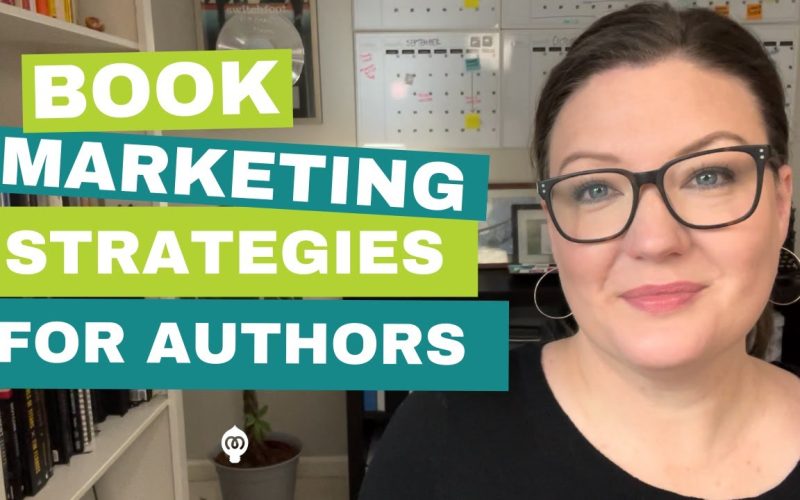Introduction
You did not write your book only to sit quietly. But the most powerful marketing does not always come from attractive advertisements – it is often behind the curtain. With the right trick, your book can sell continuously and quietly while creating success for a long time. This is why many writers turn to reliable book marketing services to ensure that their book is seen by the right audience. Let’s dive into perfect strategies that let your book speak for itself – and still make a loud impact.
Top Smart Author’s Marketing Guide
1. Know your readers
Understanding your audience helps in shaping every decision you make. When you know their preferences, platforms, and reading habits, your message echoes better. You waste less time and money targeting the wrong people. Start by researching your style and reader demographics. Your audience is clear, your marketing effect will be equally strong.
2. Build a Consistent Author Brand
Your author brand is your identity it should be clear, memorable, and emotionally engaging. It includes your voice, visuals, tone, and what readers associate with your name. Whether you’re funny, mysterious, romantic, or educational, your brand should reflect that. Use the same colors, themes, and language across all platforms. A strong brand helps readers remember you and creates trust over time. It’s not just about selling a book—it’s about building a long-term following.
3. Master the Power of Social Media
Social media isn’t about shouting your book title every day it’s about building relationships. Choose 1–2 platforms your readers use and show up consistently with value-driven content. Share writing insights, reader shout-outs, personal experiences, or even memes that reflect your genre. Respond to comments, repost fan content, and join conversations. This builds trust and engagement, turning casual followers into loyal readers. Social platforms are today’s word-of-mouth use them wisely.
Social platforms help you reach potential readers, but focus on a few where your audience hangs out. Popular choices include:
- Facebook: Author pages, reader groups, and paid ads to boost visibility.
- Instagram: Visually showcase covers, quotes, writing spaces, and event photos. Use Stories and Reels for quick, engaging content.
- Twitter/X: Share writing updates, industry news, and connect with fellow authors and agents.
- TikTok: BookTok is powerful for short, creative videos—think book teasers, character reveals, or writing tips.
- LinkedIn: Ideal for non-fiction authors, professionals, and B2B topics.
Post consistently 2–3 times a week and mix content: promotional posts, personal stories, tips, and interactive polls. Engage with comments and DMs to build community.
4. Prepare a Strategic Book Launch
A book launch isn’t a date it’s a process. Start planning your campaign 6 to 8 weeks before release. Tease your audience with sneak peeks, cover reveals, and countdowns to build excitement. Organize ARC readers and collect reviews early to build social proof. Use giveaways, launch parties, or email announcements to boost release-day momentum. A good launch sets the tone for your book’s entire sales cycle don’t leave it to chance.
5. Highlight Reader Benefits
Your book offers value so show it. Focus your messaging on what the reader will gain, whether it’s entertainment, insight, or emotional connection. Avoid listing only features. Think about what problem your book solves or how it fulfills a desire. A benefit-driven message always lands better than just “buy my book.”
6. Strengthen Your Author Brand
A strong author brand builds trust. Be consistent with your tone, visuals, and personality across platforms. Whether it’s your website or Instagram, let your readers know what kind of experience to expect. Your brand should reflect your genre and voice. People don’t just buy books—they follow authors they connect with.
7. Plan a Strategic Launch
A book launch is more than just a release date—it’s a campaign. Build excitement in advance through teaser posts, countdowns, and giveaways. Use preorder incentives and early reviews to build momentum. The first few weeks can set the tone for long-term success. Start early and stay consistent.
8. Gather Early Reviews
Good reviews create social proof. Reach out to early readers and influencers with Advance Reader Copies (ARCs). Ask them to post reviews on platforms like Amazon and Goodreads. Even a few thoughtful reviews can boost credibility. Authentic feedback is more powerful than any sales pitch.
Positive reviews and media mentions build credibility and drive sales:
- Book Bloggers and Influencers: Send advance reader copies (ARCs) in exchange for honest reviews. Focus on bloggers whose audience matches your genre.
- Goodreads Giveaways: Run a giveaway to boost visibility and gain reader reviews.
- Podcast & Blog Interviews: Pitch yourself as a guest on shows and sites relevant to your book’s themes.
- Local Media: Reach out to community newspapers, radio stations, and libraries for author features and readings.
- Press Kit: Prepare a press kit with bio, high-res author photo, book cover, synopsis, and contact details.
Track reviews and mentions; share positive quotes on your website and social media.
9. Grow an Email List
Email is a direct line to your readers. Unlike social media, you own your list and control the message. Offer freebies like sample chapters to encourage signups. Send regular updates that provide value, not just promotions. A good list turns one-time buyers into lifelong fans.
An email list gives you a direct line to fans. Unlike social media, you own your list and won’t be affected by algorithm changes. To build your list:
- Offer a Lead Magnet: A freebie like the first chapter, a bonus scene, or a character interview.
- Place Sign-Up Forms Strategically: On your website’s homepage, blog posts, and at the end of articles.
- Promote on Social Media: Create posts highlighting your free gift and linking to the sign-up page.
- Set Up a Welcome Sequence: Automate 3–5 emails introducing yourself, sharing behind-the-scenes insights, and guiding readers to buy your book.
Send monthly updates with personal messages, exclusive excerpts, and special offers to keep subscribers engaged.
10. Create Evergreen Content
Content that lasts can keep promoting your book for months or years. Blog posts, YouTube videos, or podcast appearances are all discoverable long after they’re published. Include links to your book and make sure the content ties into your genre. This approach lets your marketing work quietly and continuously.
11. Use Smart Ads
You don’t need a big budget just smart targeting. Test ads on Amazon or Facebook with specific audiences. Start small, track results, and adjust. Ads work best when they support an overall strategy, not when they’re your only tactic. Let them quietly boost awareness in the background.
Paid ads can drive targeted traffic and sales when done right:
1. Amazon Ads
- Sponsored Products: Show ads to shoppers searching keywords in your genre.
- Lockscreen Ads: Appear on Kindle e-readers when idle.
2. Facebook & Instagram Ads
- Custom Audiences: Retarget website visitors and email subscribers.
- Interest Targeting: Reach readers of similar authors and genres.
3. BookBub Ads
-
Ideal for authors with strong reviews. Bids to appear on genre-specific recommendation pages.
4. Google Ads
-
Search Ads: Target keywords like “cozy mystery books” or “self-help for anxiety.”
Set a clear budget, monitor click-through and conversion rates, and adjust bids and targeting based on performance data.
12. Collaborate with Others
Working with fellow authors or book influencers expands your reach. Cross-promotions, guest posts, and giveaways help you tap into new audiences. Community collaboration builds credibility and spreads your book through trusted voices. It’s a low-cost, high-trust strategy that works wonders.
13. Track and Tweak
Always review what is working. Track the matrix, such as email opens, advertising clicks, and sales trends. Small insights can lead to major improvements. Marketing is not a one-size-fits-all, so adjust your strategy based on real data. Development comes from learning and purification.
14. Help experts
You do not have to do all this alone. Sometimes, the most clever trick is outsourcing for professionals. A good team understands the market and knows how to position your book. If you’re ready for next-level results, reach out to a book marketing and publishing company. Let your book speak loudly even in silence.
Conclusion
Getting your book into their hands requires more than great writing—it demands smart, consistent marketing. This author marketing guide covered key steps: defining your brand, building a professional website, growing an email list, leveraging social media, securing reviews, and using paid ads. Hosting events, collaborating with peers, and tracking your data help optimize every campaign. Above all, patience and persistence turn small daily actions into long-term success. Follow this roadmap to connect with readers, boost your visibility, and watch your book sales grow. Ready to make your mark? Start today and let your story reach the world.
Read more: Blogs










